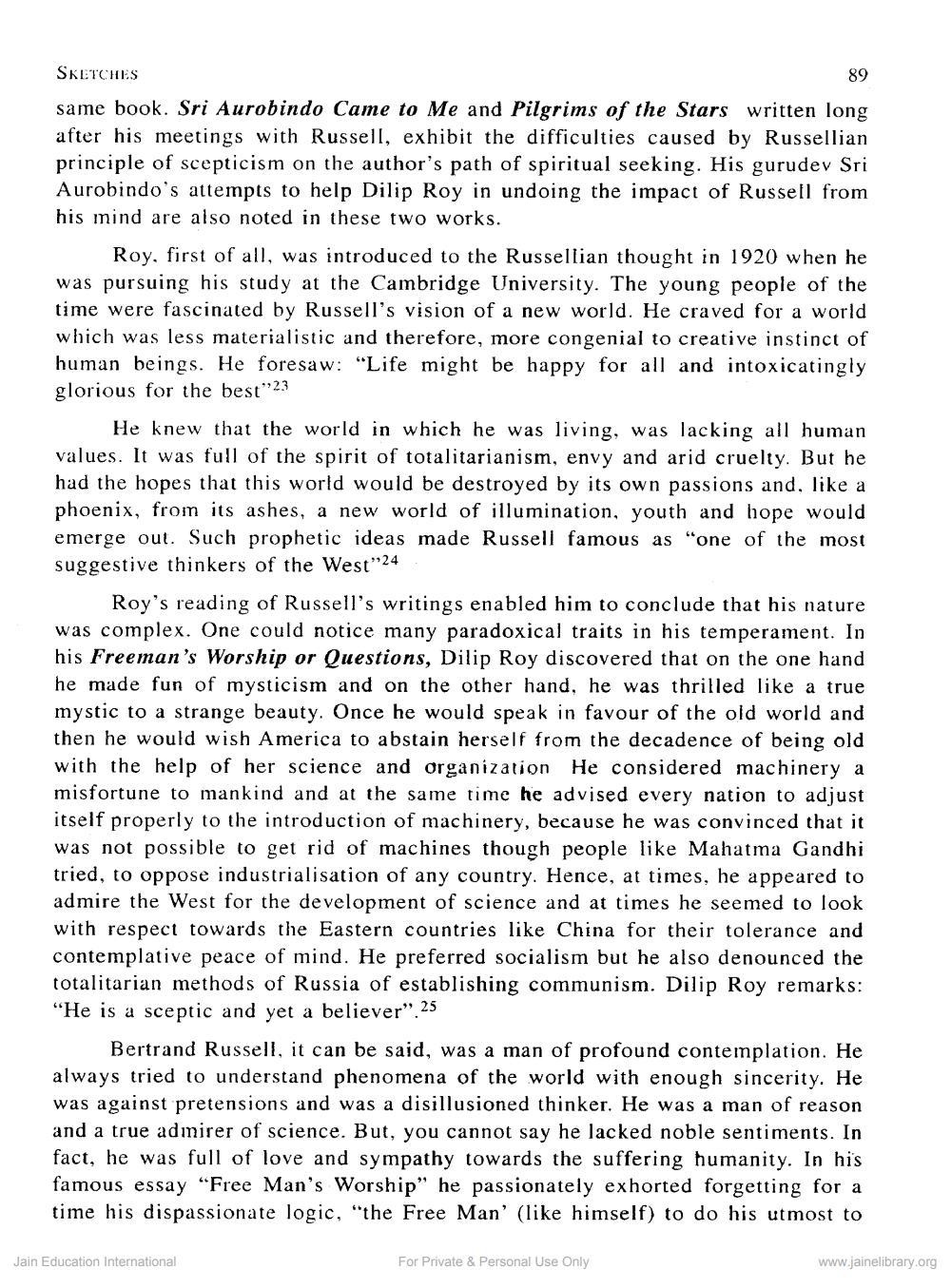________________
SKETCHES
89
same book. Sri Aurobindo Came to Me and Pilgrims of the Stars written long after his meetings with Russell, exhibit the difficulties caused by Russellian principle of scepticism on the author's path of spiritual seeking. His gurudev Sri Aurobindo's attempts to help Dilip Roy in undoing the impact of Russell from his mind are also noted in these two works.
Roy, first of all, was introduced to the Russellian thought in 1920 when he was pursuing his study at the Cambridge University. The young people of the time were fascinated by Russell's vision of a new world. He craved for a world which was less materialistic and therefore, more congenial to creative instinct of human beings. He foresaw: "Life might be happy for all and intoxicatingly glorious for the best":23
He knew that the world in which he was living, was lacking all human values. It was full of the spirit of totalitarianism, envy and arid cruelty. But he had the hopes that this world would be destroyed by its own passions and, like a phoenix, from its ashes, a new world of illumination, youth and hope would emerge out. Such prophetic ideas made Russell famous as “one of the most suggestive thinkers of the West":24
Roy's reading of Russell's writings enabled him to conclude that his nature was complex. One could notice many paradoxical traits in his temperament. In his Freeman's Worship or Questions, Dilip Roy discovered that on the one hand he made fun of mysticism and on the other hand, he was thrilled like a true mystic to a strange beauty. Once he would speak in favour of the old world and then he would wish America to abstain herself from the decadence of being old with the help of her science and organization He considered machinery a misfortune to mankind and at the same time he advised every nation to adjust itself properly to the introduction of machinery, because he was convinced that it was not possible to get rid of machines though people like Mahatma Gandhi tried, to oppose industrialisation of any country. Hence, at times, he appeared to admire the West for the development of science and at times he seemed to look with respect towards the Eastern countries like China for their tolerance and contemplative peace of mind. He preferred socialism but he also denounced the totalitarian methods of Russia of establishing communism. Dilip Roy remarks: “He is a sceptic and yet a believer". 25
Bertrand Russell, it can be said, was a man of profound contemplation. He always tried to understand phenomena of the world with enough sincerity. He was against pretensions and was a disillusioned thinker. He was a man of reason and a true admirer of science. But, you cannot say he lacked noble sentiments. In fact, he was full of love and sympathy towards the suffering humanity. In his famous essay “Free Man's Worship” he passionately exhorted forgetting for a time his dispassionate logic, "the Free Man' (like himself) to do his utmost to
Jain Education International
For Private & Personal Use Only
www.jainelibrary.org




